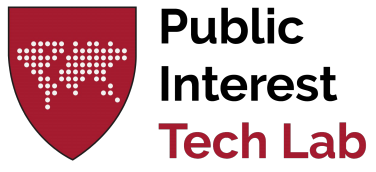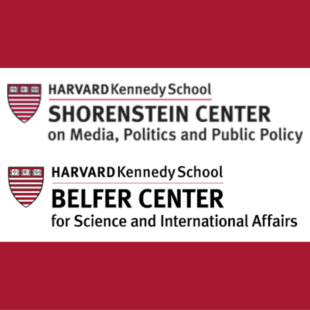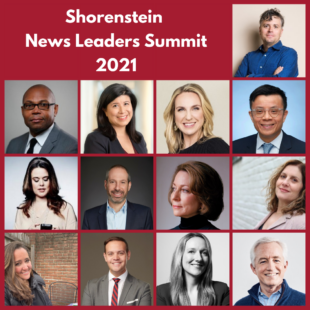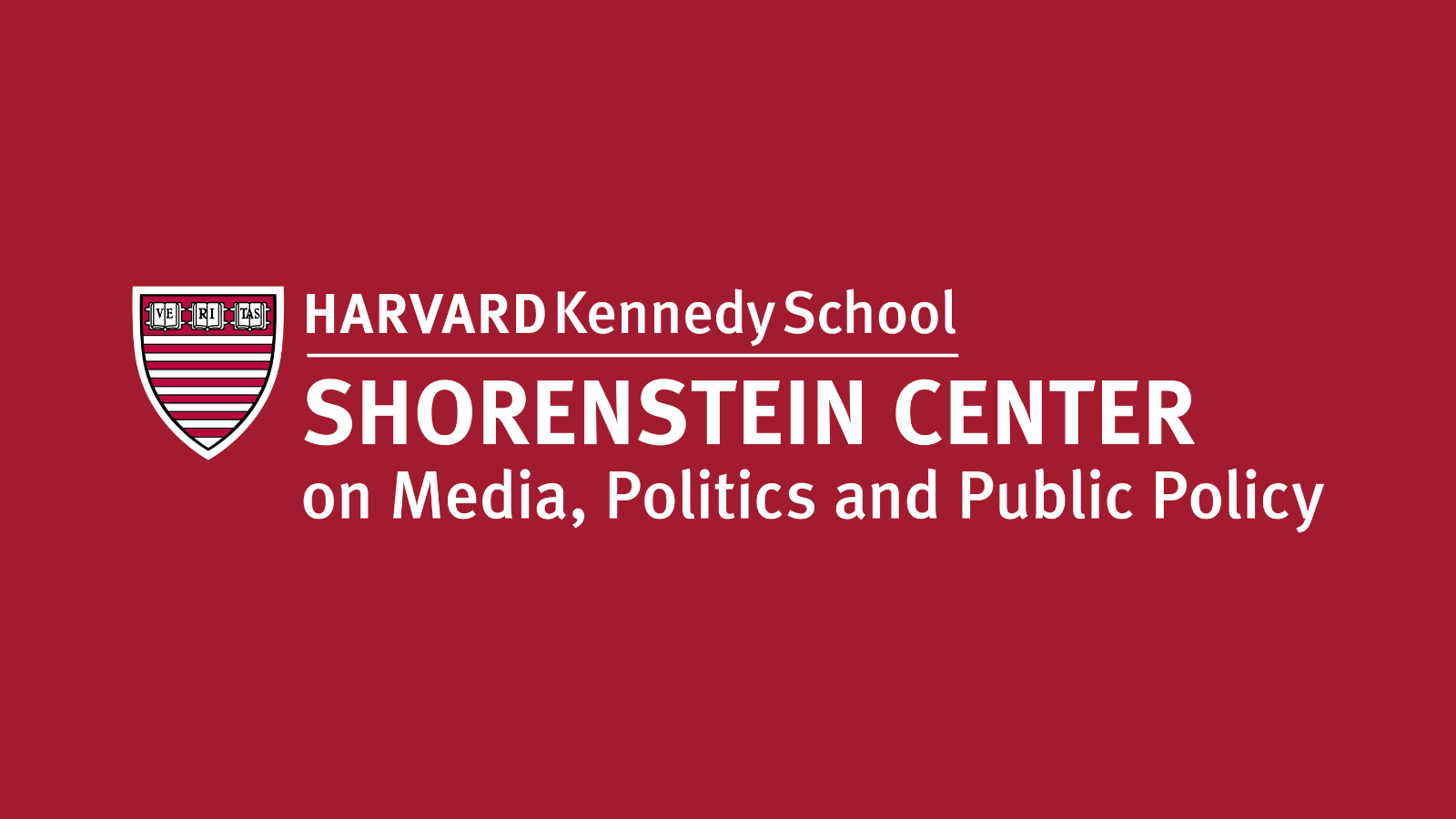To receive our monthly newsletter and other roundups like this, of work happening across the Shorenstein Center, sign up for our mailing list.
The Shorenstein Center enjoyed enormous expansion and growth in 2021, welcoming a large cohort of new faculty and fellows this year – from our brilliant behavioral decision scientists to the incomparable and indomitable Maria Ressa.
Under the leadership of our new executive director Laura Manley we are also looking forward with a longer lens – building new systems and structures to encourage collaboration and enhance communication, to be sure the work done in our labs finds its way into the hands of journalists, policymakers, civil society leaders and private sector innovators. Research will always be at the heart of what we do as an academic center: but our focus on impact ensures that our work is relevant in classrooms and courtrooms and newsrooms, and across the broad landscape of democracy defenders.
We thank you for your continued support of the Shorenstein Center and for being such valuable members of this community. We invite you to read on for a recap of the Shorenstein Center’s biggest and brightest moments of 2021.
Sincerely,
Nancy Gibbs
Director
Edward R. Murrow Professor of the Practice of Press, Politics and Public Policy at Harvard Kennedy School

Maria Ressa’s Salant Lecture on Freedom of the Press and Shorenstein Fellowship
The Shorenstein Center had the great privilege of co-hosting Maria Ressa, 2021 Nobel Peace Prize winner and co-founder and CEO of Rappler.com, on campus this semester as the Fall 2021 Shorenstein Center Fellow, and Center for Public Leadership Hauser Leader. While on campus, Maria conducted research on social media and press freedom, participated in roundtable discussions, and engaged with students. As this year’s Salant Lecture on the Freedom of the Press, Maria delivered a rousing call to action to protect press freedom and the pursuit of truth around the world. Watch the full lecture here.

Launch of the Public Interest Tech Lab
The new Public Interest Tech Lab, led by Professor Latanya Sweeney and supported by a $3 million grant from the Ford Foundation, offers scholars practical technology tools and experience to help them reimagine how technology can be used by governments and civil society for public good. To learn more about the Public Interest Tech Lab visit techlab.org.

Decision Science Faculty Join The Shorenstein Center
This year the Shorenstein Center was thrilled to welcome three new faculty members with expertise in behavioral decision science – a new area of focus and research initiative at the Center:
- Jennifer Lerner, Thornton Bradshaw Professor of Public Policy, Decision Science, and Management
- Julia Minson, Associate Professor of Public Policy
- Todd Rogers, Professor of Public Policy

More New Faculty at the Shorenstein Center
The Shorenstein Center welcomed Sharad Goel, Professor of Public Policy, and Jim Waldo, Professor of Policy at HKS and Gordon McKay Professor of the Practice of Computer Science at SEAS as resident faculty this year. Professors Goel and Waldo bring expertise at the intersection of computer science, social issues, and public policy.

The Launch of the Democracy and Internet Governance Initiative
Harvard Kennedy School’s Belfer Center for Science and International Affairs and Shorenstein Center on Media, Politics and Public Policy launched the Democracy and Internet Governance Initiative (DIGI), a joint initiative to convene a range of stakeholders across government, business, and civil society to address the growing public concerns about digital platforms. Read more here.

The 2021 News Leaders Summit
Launched this fall, with support from the John S. and James L. Knight Foundation, and led by the Technology and Social Change project team, this new program brought together small cohorts of news and media leaders to help newsrooms fight misinformation and media manipulation. Learn more about the program and the participants from the first Harvard Shorenstein News Leader Summit here.

Local Journalism Solutions
Traditional business models for journalism, and local news in particular, continued to collapse in 2021, just as people needed reliable local news more than ever. The Shorenstein Center is taking a multi-pronged approach to understanding the crisis in local news, and solutions that may work to bolster it and protect the critical role it plays in supporting democracy. Schuster Media & Technology Fellow Craig Forman published a detailed landscape review of research on this subject titled “Solutions to America’s Local Journalism Crisis: A Consolidated Literature Review” and an accompanying Zotero library of cited research.

COVID-19 Pandemic Public Opinion Study
Professor Matthew Baum’s COVID States project, a multi-university collaboration that has been surveying people in all 50 states since the beginning of the pandemic, published over 40 new reports in 2021. Reports covered public support for vaccine mandates, COVID-19 vaccine attitudes among healthcare workers, a look at the mask-wearing behaviors of the vaccinated versus the unvaccinated, and the heightened parental concerns about COVID-19 vaccinations for children. You can read all of the latest reports from the COVID States Project at CovidStates.org.
The Journalist’s Resource’s top tips, research, and explainers for 2021
- Religious exemptions and required vaccines: Examining the research
- The truck driver shortage and the trucking industry workforce: 5 studies to consider
- Multicultural education: How schools teach it and where educators say it falls short
- Covering critical race theory and the push to keep it out of US public schools: 4 tips for journalists
- COVID-19 vaccines during pregnancy: What research shows
The Misinformation Review’s most-read articles of 2021
- Research note: Examining false beliefs about voter fraud in the wake of the 2020 Presidential Election
- Lateral Reading: College students learn to critically evaluate internet sources in an online course
- Right and left, partisanship predicts (asymmetric) vulnerability to misinformation
- The presence of unexpected biases in online fact-checking
- The presumed influence of election misinformation on others reduces our own satisfaction with democracy
The Media Manipulation Casebook’s top studies of 2021
- Dueling Information Campaigns: The War Over the Narrative in Tigray
- Cloaked Science: The Yan Reports
- Recontextualized Media: Biden “Voter Fraud Organization”
- Mitigating Medical Misinformation: A Whole-of-society Approach to Countering Spam, Scams, and Hoaxes
- Misidentification: How the #Antifafires Rumor Caught On Like Wildfire


